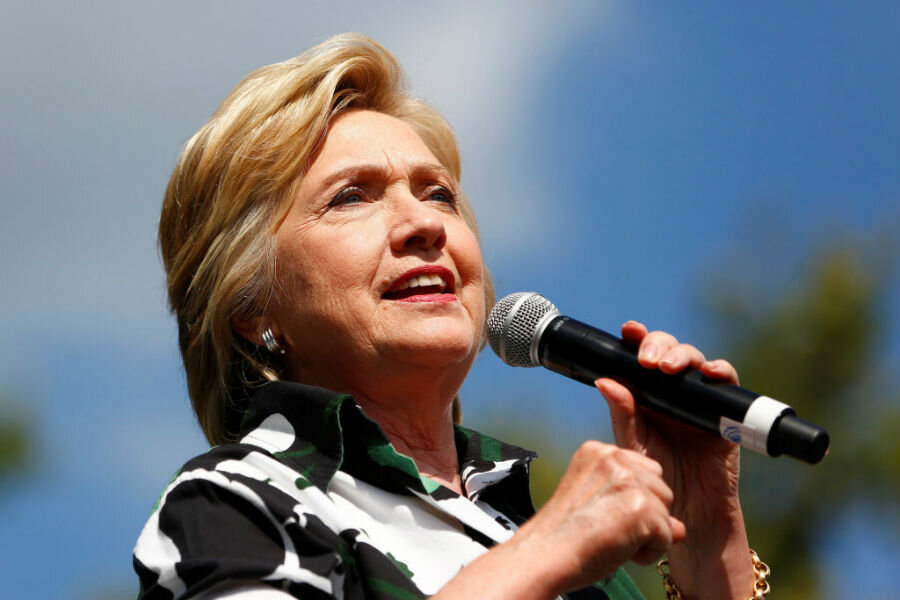The real reckoning
Loading...
In her speech accepting the Democratic nomination, Hillary Clinton said the nation was at “a moment of reckoning.”
She’s right, but the reckoning is not simply the choice voters face this fall between her and Donald Trump. The real reckoning is larger and it will extend beyond Election Day.
Yet Washington insiders expect a return to politics as usual.
I’m already hearing Republicans dismiss Donald Trump as a weird aberration. “Ordinarily, Trump wouldn’t have stood a chance,” a Republican operative told me. “He won because he didn’t have a clear opponent until the very end. And Cruz is almost as crazy as Trump.”
I get a similar story from Democrats trying to explain Bernie Sanders. “His campaign was a freak,” a longtime Democratic adviser told me. “Hillary will be elected and then Washington will go on as if nothing happened.”
They want to return to business as usual because many of them make their bread on that business – working for big corporations, Wall Street, or wealthy individuals as political consultants, lobbyists, corporate lawyers, government-relations specialists, public-relations specialists, trade association staff, and paid experts.
But Donald Trump isn’t just an aberration and Bernie Sanders wasn’t just a flash in the pan. Both, in very different ways, reflect a crisis in our political economy.
In a Gallup poll taken in mid-July, before the conventions, 82 percent said America was on the wrong track. In an NBC News/Wall Street Journal poll just before that, 56 percent said they preferred a candidate who would bring sweeping changes to the way the government functioned, no matter how unpredictable those changes might be.
The major issue the public is reacting to isn’t terrorism or racism. We didn’t see these numbers after 9/11. We didn’t even get these sorts of responses in the late 1960s, when American cities were torn by riots and when the Vietnam War was raging.
It’s the rigging of our economy – the increasingly tight nexus between wealth and political power. Big money has been buying political clout to get laws and regulations that make big money even bigger.
As Hillary Clinton said in her acceptance speech, “I believe that our economy isn’t working the way it should because our democracy isn’t working the way it should.”
She’s correct, but she didn’t finish the logic. Democracy is not working the way it should because it’s being corrupted by big money. That big money is altering the rules of the game to generate even bigger money.
Americans now pay more for pharmaceuticals than the citizens of any other advanced nation because Big Pharma is setting the rules – extending the life of drug patents, prohibiting Medicare from using its bargaining power to get lower drug prices, and blocking consumers from buying cheaper drugs from Canada.
We pay more for Internet service, health insurance, airline tickets, and banking services because the increasing market power of key players in these industries lets them raise prices. Antitrust enforcement has been systematically weakened.
The biggest Wall Street banks continue to reap the financial benefits of being too big to fail. Hedge-fund partners make bundles from confidential information, trading on which used to be illegal.
CEOs cash in their stock options and grants just when they pump up the value of their company’s stocks with buybacks. It’s allowed because laws and regulations have been loosened.
Trade agreements are now designed to protect the intellectual property and foreign assets of giant corporations, but nothing is done to protect the incomes of Americans who lose their jobs to foreign competition.
This is business as usual in Washington.
Hillary Clinton has a long list of good proposals for helping average working people, but none of them is going anywhere if Washington stays the same and the economic game remains rigged.
Instead, Americans will become even more angry and cynical.
That’s the real reckoning – hers and ours.
Donald Trump didn’t come from nowhere. He is the loudest and clearest warning shot across the bow of the current American political economic system.
Hopefully he’ll lose in November. But unless that warning is heeded, the dark anger that has produced him will produce another homegrown demagogue, possibly far worse.
This article first appeared at Robertreich.org.








